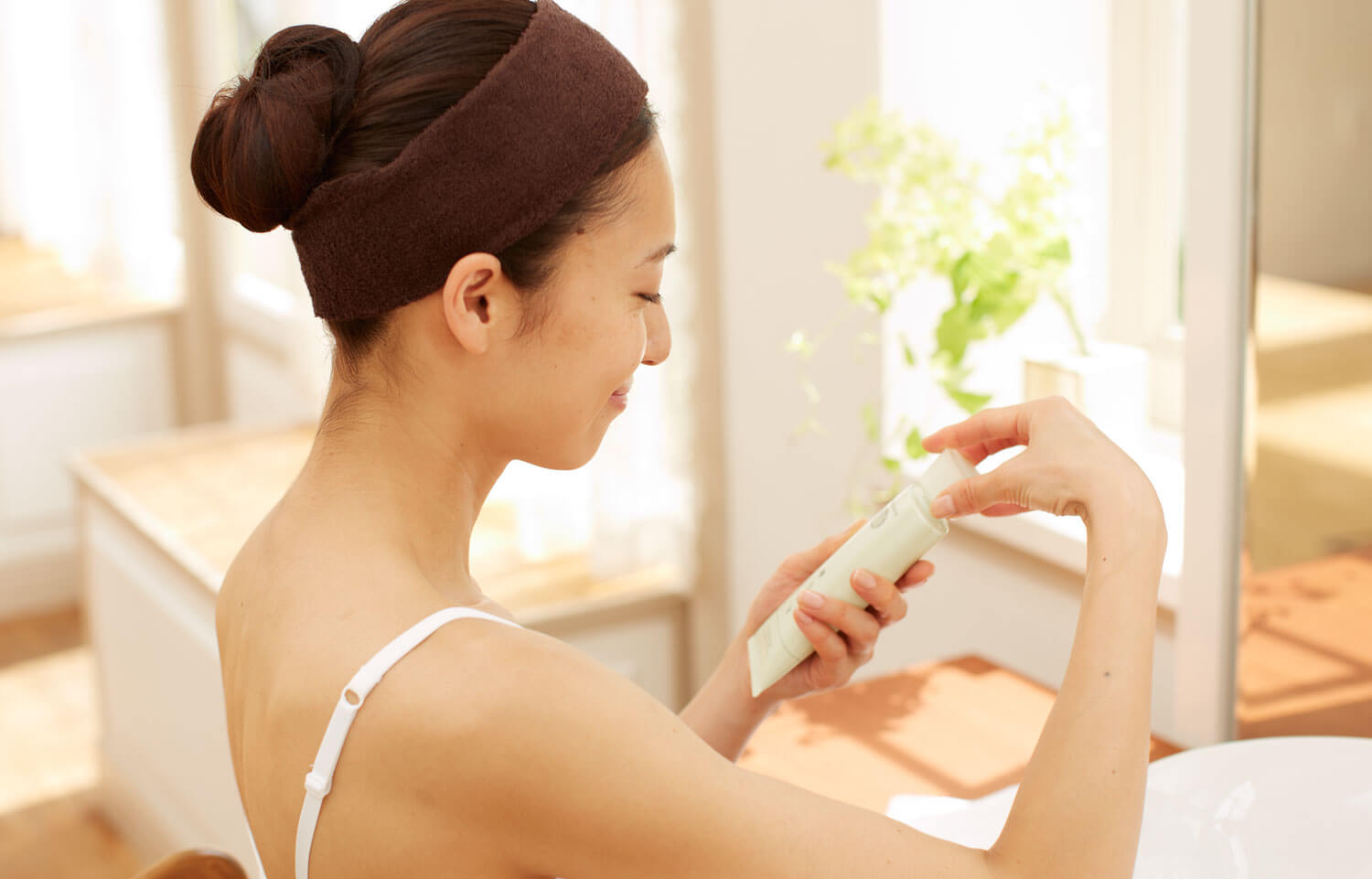find out how much you really know about dealing with sebum -“True or false” quiz-

Are your skincare techniques based on misconceptions?
Our “true or false” quiz is the quick and easy way to find out whether you’re using the correct techniques to deal with sebum. Take it right now!
Q1. Over-washing your face makes your skin produce excess sebum.
Q2. It’s best to remove sebum from your face frequently, using facial blotting papers.
Q3. Applying cream to your face makes your skin sticky, so if you have oily skin, it’s better just to use a facial serum.
Q4. When washing your face, it’s best to rinse it with warm water so as not to leave any suds or sebum on your skin.
How many questions could you answer? Now let’s look at the right answers and the reasons behind them.
Q1. Over-washing your face makes your skin produce excess sebum.
A1. True
The surface of your skin is protected by a film of sebum and moisture. Over-washing your face destroys this film. The skin then tries to restore it, and as a result, excess sebum is secreted. Basically, you should wash your face once in the morning, and once in the evening. In the summertime, if your face feels sticky, it’s OK to wash it again during the day, but no more than once or twice.
Q2. It’s best to remove sebum from your face frequently, using facial blotting papers.
A2. False
Removing too much sebum is a bad idea, for the reason explained above. Facial blotting papers are only needed if oily, shiny skin is a real concern. In the summertime, however, your face does tend to get oily. If you don’t do anything about it, the excess oil can not only spoil your make-up, but also clog and darken your pores, so using facial blotting papers as and when required is a good idea for aging skin. When using blotting papers, press them lightly against your skin, rather than rubbing.
Q3. Applying cream to your face makes your skin sticky, so if you have oily skin, it’s better just to use a facial serum.
A3. False
If you apply facial serum and then just leave it, the moisture you have carefully replenished will end up evaporating into the air. When this happens, the moisture in your skin evaporates with it, which can cause overdrying. After applying facial serum, you should always apply a skin cream, skin emulsion or other oil-based product, to stop the moisture evaporating.
Anti-aging creams are particularly useful at this stage, because they not only help to “seal in” the moisture, but also contain plenty of ingredients to boost the health of your skin, so make good use of these products. Using only a small amount of facial serum may also lead to a sticky feeling. If you allow the facial serum to be absorbed properly, so your skin is already nice and smooth before you apply the cream, the sticky feeling will be reduced.
Q4. When washing your face, it’s best to rinse it with warm water so as not to leave any suds or sebum on your skin.
A4. False
If you use hot water to wash or rinse your face, you risk washing away your skin’s own natural moisture. It’s best to wash your face in water that feels slightly tepid to the touch. If you wash your face with a showerhead while sitting in the bath, with the shower temperature at 40 degrees or higher, please think again! According to some experts, even the physical stimulus of the shower can eventually cause your skin to lose suppleness. When rinsing your face, be careful not to use water that’s too hot, and use your hands to gently scoop the water onto your face.

